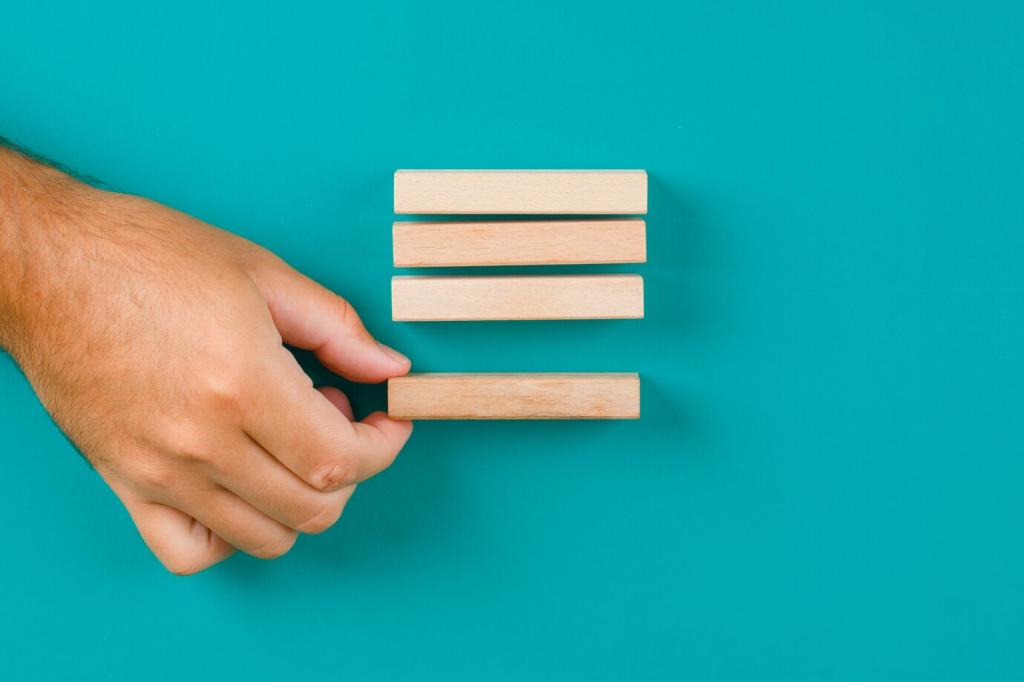How Minimalism Enhances Home Organization
Minimalism is more than just an interior design trend; it is a lifestyle philosophy that values simplicity, intentionality, and clarity. When applied to home organization, minimalism transforms living spaces into serene, functional environments by eliminating excess and highlighting what truly matters. This approach not only improves the aesthetics of a home but also reduces stress, fosters mindfulness, and streamlines daily routines. Understanding how minimalism enhances home organization provides individuals with the tools and motivation to create spaces that support well-being and productivity.

Cultivating a Mindful Approach to Space
Embracing Conscious Ownership
Conscious ownership means being selective about what enters and remains in your home. Minimalism fosters awareness of the relationship between possessions and personal well-being, prompting individuals to assess whether items truly contribute to happiness and functionality. By prioritizing quality over quantity, this mindset curbs impulsive purchases and reduces clutter. Over time, conscious ownership leads to a more harmonious and manageable home environment, where every object serves a distinct and valued role.
Reducing Mental Clutter
A cluttered physical space often correlates with a cluttered mind. Minimalism’s practice of paring down belongings has a profound impact on mental clarity. By removing excess and organizing remaining items purposefully, the home becomes a place of calm that supports focus and relaxation. The process of decluttering can also be therapeutic, offering the opportunity to let go of the past and make intentional choices about the present. This reduction in visual noise helps individuals recharge and better manage daily stress.
Creating Intentional Living Zones
Minimalism emphasizes the importance of defining clear zones for different activities within the home. This approach discourages the scattering of objects throughout shared spaces, thereby reducing chaos and confusion. Each zone is outfitted with only those items necessary for its function, making it easier to keep environments tidy and purposeful. Intentional zoning not only streamlines organization but also improves efficiency, making transitions between activities smoother and more enjoyable.

Streamlining Storage Solutions
Minimalism urges homeowners to assess storage not as a place to hide clutter, but as a means to organize what matters most. By using versatile and compact storage options, spaces remain open and inviting. Thoughtful storage solutions—such as modular units or concealed compartments—are selected based on real needs, making every item easy to access and maintain. Such strategies keep home organization straightforward, continuously supporting a clutter-free lifestyle.
Choosing Multipurpose Furnishings
Furniture in a minimalist home is selected for both its aesthetics and function. Multipurpose furnishings, such as extendable tables or storage ottomans, maximize space without overcrowding rooms. Each piece serves multiple roles, reducing the number of items needed and contributing to a tidier overall look. This focus on versatility enables homeowners to reconfigure spaces as needs change, further supporting adaptability and convenience in organization over time.
Prioritizing Open Spaces
A hallmark of minimalism is the intentional use of open space. Rather than filling every corner, minimalist design allows negative space to breathe, enhancing a room’s sense of order and lightness. Open spaces make it easier to clean and maintain order, and they create visual clarity that can boost mood and productivity. This prioritization of emptiness over excess forms the cornerstone of long-term home organization and comfort.

Establishing Habits of Consistent Maintenance
Organized homes do not stay organized by accident. Minimalism encourages the development of regular habits for maintaining order, such as the “one in, one out” rule or setting aside time each week for tidying up. These routines prevent clutter from accumulating anew, making organization a seamless part of daily life. The minimalist emphasis on fewer possessions also means that maintaining order becomes less overwhelming, empowering residents to take pride in their living spaces.
Fostering Attachment to Meaningful Possessions
Minimalism teaches appreciation for the items that remain after decluttering, cultivating attachment to objects that hold real significance. This relationship encourages careful stewardship and proper organization of these cherished possessions. Instead of being overwhelmed by abundance, individuals find satisfaction in caring for what matters, which naturally supports an organized and pleasant home environment. Possessions are no longer seen as burdensome, but as valued contributors to personal comfort.
Reducing Environmental Impact
One of the overlooked benefits of minimalism in home organization is its positive impact on the environment. By curbing unnecessary consumption and disposals, minimalist households contribute less waste. Organization strategies prioritize longevity and quality, ensuring that items are used fully before being replaced or discarded. This mindful consumption supports both an orderly home and a more sustainable lifestyle, bridging the gap between personal well-being and global responsibility.
